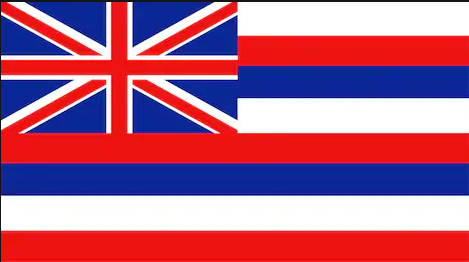Introduced by Representative Okimoto (R-36), House Bill 1830 removes sales and use tax against gold and silver bullion and currency in Hawaii. Under current law, Hawaii citizens are discouraged from insuring their savings against the devaluation of the dollar because they are penalized with taxation for doing so. Passage of this measure would remove disincentives to holding gold and silver for this purpose. HB 1830 is important for a few reasons: Levying sales taxes on precious metals is inappropriate. Sales taxes are typically levied on final consumer goods. Computers, shirts, and shoes carry sales taxes because the consumer is “consuming” the good. Precious metals are inherently held for resale, not “consumption,” making the application of sales taxes on
Topics:
Jp Cortez considers the following as important: 6a.) Gold Standard, 6a) Gold & Bitcoin, Featured, newsletter
This could be interesting, too:
Nachrichten Ticker - www.finanzen.ch writes Die Performance der Kryptowährungen in KW 9: Das hat sich bei Bitcoin, Ether & Co. getan
Nachrichten Ticker - www.finanzen.ch writes Wer verbirgt sich hinter der Ethereum-Technologie?
Martin Hartmann writes Eine Analyse nach den Lehren von Milton Friedman
Marc Chandler writes March 2025 Monthly

Introduced by Representative Okimoto (R-36), House Bill 1830 removes sales and use tax against gold and silver bullion and currency in Hawaii.
Under current law, Hawaii citizens are discouraged from insuring their savings against the devaluation of the dollar because they are penalized with taxation for doing so. Passage of this measure would remove disincentives to holding gold and silver for this purpose. HB 1830 is important for a few reasons:
- Levying sales taxes on precious metals is inappropriate. Sales taxes are typically levied on final consumer goods. Computers, shirts, and shoes carry sales taxes because the consumer is “consuming” the good. Precious metals are inherently held for resale, not “consumption,” making the application of sales taxes on precious metals inappropriate.
- Studies have shown that taxing precious metals is an inefficient form of revenue collection. The results of one study involving Michigan show that any sales tax proceeds a state collects on precious metals are likely surpassed by the state revenue lost from conventions, businesses, and economic activity that are driven out of the state.
- Taxing gold and silver harms in-state businesses. It’s a competitive marketplace, so buyers will take their business to other states, thereby undermining Hawaii jobs. Levying sales tax on precious metals harms in-state businesses who will lose business to out-of-state precious metals dealers. Investors can easily avoid paying $110.60 in sales taxes, for example, on a $1,580 purchase of a one-ounce gold bar.
In total, 39 states have reduced or eliminated sales tax on the monetary metals.
- Taxing precious metals is unfair to certain savers and investors. Gold and silver are held as forms of savings and investment. Hawaii does not tax the purchase of stocks, bonds, ETFs, currencies, and other financial instruments.
- Taxing precious metals is harmful to citizens attempting to protect their assets. Purchasers of precious metals aren’t fatcat investors. Most who buy precious metals do so in small increments as a way of saving money. Precious metals investors are purchasing precious metals as a way to preserve their wealth against the damages of inflation. Inflation harms the poorest among us, including pensioners, Hawaiians on fixed incomes, wage earners, savers, and more.
This measure is one of many sound money bills being introduced across the country this year. Recently having removed all taxes on gold and silver, Wyoming plans to consider a measure to empower the state treasurer to hold physical gold and silver in state coffers. Several bills to remove taxation on sound, constitutional money are also being, or have been, introduced in Tennessee, Mississippi, South Carolina, Idaho, and Alabama.
Backed by the Sound Money Defense League, these measures protect Hawaii citizens by removing barriers to insulating their wealth with the only money proven to protect against the Federal Reserve Note’s ongoing devaluation.
Tags: Featured,newsletter
